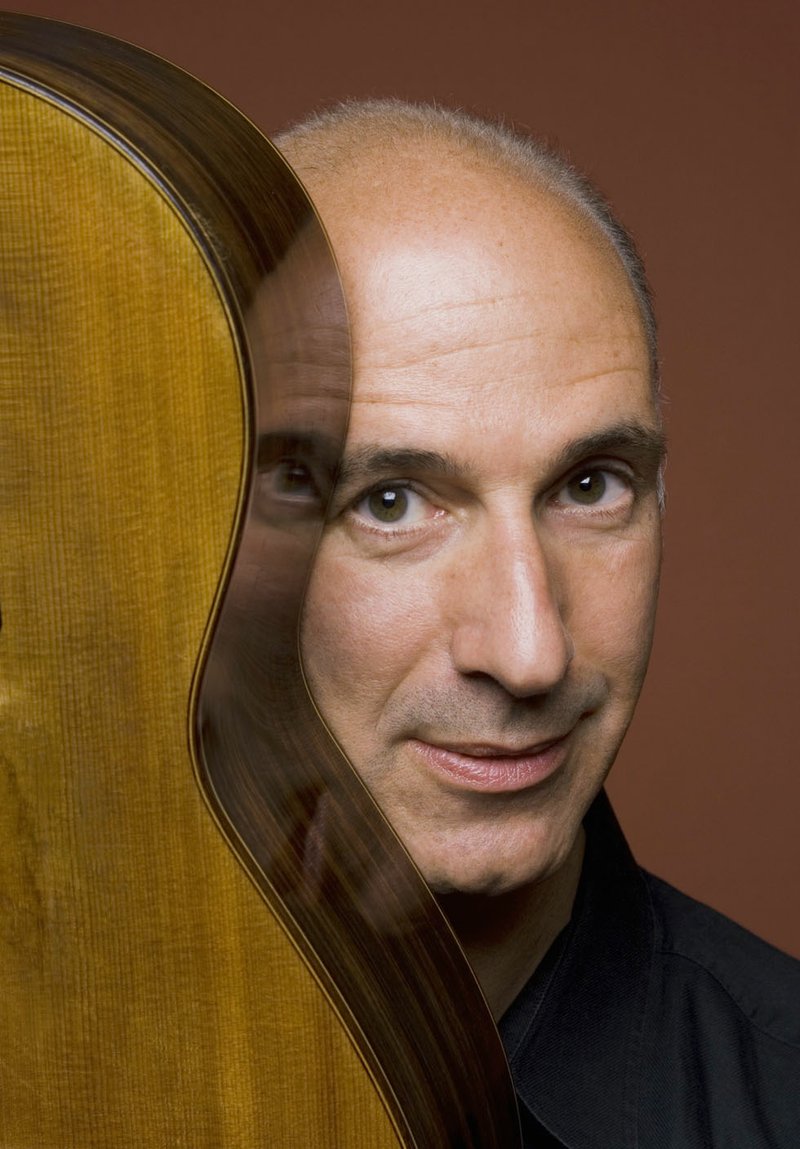David Leisner is not SoNA's typical soloist.
For one thing, he plays guitar -- not the usual instrument of classical music. For another, he's almost entirely self-taught. And for a third, his composition, "Pranayama," which the Symphony of Northwest Arkansas will perform Saturday, is based on only three notes.
FAQ
SONA:
Masterworks III
WHEN — 7:30 p.m. Saturday
WHERE — Walton Arts Center in Fayetteville
COST — $28-$50
INFO – 443-5600 or sonamusic.org
FYI
Learn More
Ticket holders are invited to attend a pre-concert Creative Conversation at 6:30 p.m. with Maestro Paul Haas and guitarist David Leisner.
"Pranayama is the method of breathing that they do in meditation and also in yoga," Leisner explains. "Following the breath is a way of controlling the rest of the body. I've done some yoga and enjoyed it a lot. But I'm also very deeply immersed in Eastern traditions, so that's kind of where this piece comes from.
"It's based on three notes -- and the rhythm of the three notes is based entirely on the breathing of each individual player," he continues. "What happens is it becomes a kind of meditation exercise both for the orchestra and for the audience. Usually overtures are big splashy pieces, fun and loud and brash. This piece is totally the opposite. If it's successful, it will pull the listeners in. They may think it's slow and strange and weird, but the more they listen, the more they'll start to hear these interesting little things going on, subtle interplays of rhythm and notes, interactions of instruments, and my hope is by the time they finish listening to the approximately 8 minutes of it, they'll be ready for the rest of the program."
Guitar, Leisner admits, "is always an odd instrument to match with an orchestra." What makes it a challenge, he explains, is the brief duration of each note -- the lack of what musicians call "sustain." But modern methods of amplification help create "quite a beautiful combination. Only a few guitar concertos have entered the repertoire, but hopefully now there will be lots more written."
Leisner, who grew up in Los Angeles, started his musical efforts on a much more traditional orchestral instrument, the violin -- "because my mother really wanted me to play violin." "But after six months of playing 'Mary Had a Little Lamb' and it was awful every time, I decided to give it up." He and his mother considered an instrument they could afford and chose guitar "because we could rent a guitar on the way to buying one, and that sounded good to my mother." Still just a preteen, Leisner started his study of folk music, then became a private student in classical music. After about a year, his teacher told him she couldn't teach him any more; he was simply too advanced.
"The way I did it was my way, and I wouldn't necessarily say to anyone else 'you should figure it out yourself,'" he says. "You have to be very self-motivated, have to have a kind of intuitive sense of how it all works technically and musically. Most people really do have to take lessons, but it isn't always the way. For me the self-taught thing worked."
Leisner used the same technique to learn to compose music, building on interests that for many years focused primarily on four composers -- Mozart, Beethoven, Count Basie and Duke Ellington.
"That dual interest went with me for a long time," he says. "Then, kind of in the middle of my college experience, I let go of the jazz thing, I think because classical music was so all encompassing.
"Classical music was, and is, extraordinarily fulfilling."
NAN What's Up on 04/28/2017
